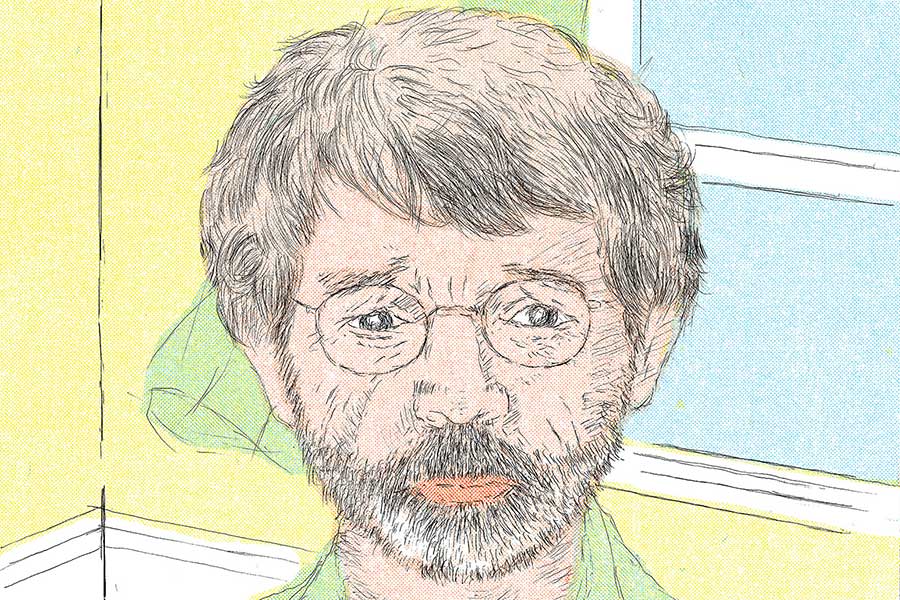Wang’s ‘Satisfaction Cafe’ lives up to its name

Kathy Wang’s sumptuous new novel “The Satisfaction Cafe” beguiled me so fiercely I wanted, once finished, to un-remember it so I could relish it again for the first time. In no way the Hallmark-card rom-com its title may suggest, this deft, sharp, funny, poignant chronicle delights and surprises: modern, complex, credibly absurd. Traveling skillfully across one woman’s lifetime, readers will feel up-close and personal — both to that trajectory and to all the lives it touches. One of the richest, prickliest, wittiest contemporary sagas I can recall, “Satisfaction” is — I’m sorry, no other words work — profoundly satisfying.
Meet Joan Liang, arrived in her twenties to California from Taiwan to study at Stanford (sneered at by her bitter, grasping parents back home). Broke and struggling, she also works as a waitress, renting a room in a widow’s attic. Quite soon she marries a callow young Chinese architecture student who “besides being handsome … also looked nice. Because her parents were mean, Joan was drawn to this sort of appearance.”
That kind of droll, deadpan aperçu characterizes Wang’s prose, as well as (in close third-person point of view) Joan’s reasoning. Her parents are, in fact, hella mean. Wang continues blithely: “… and she was married for only six weeks before she stabbed her husband. The year was 1975.”
Awake now? With that bold fillip we start to grasp Joan’s uncanny nature — both demure and shockingly brave — and Wang’s smooth control of a bucking-bronco of a story, as we enter the awareness of a young Asian woman, transplanted from scarcity, facing the triple-whammy of American luxury, mores, and prejudices.
When Joan next marries Bill, a wealthy older white man, she inherits his lush world of (Northern California-based) affluence — his fabulous designer home — and his selfish, quarrelsome extended family, including spoiled grown twins. (We want to jump into some scenes and shout at all of them.) Joan manages the transition with resourceful wit and courage — even if she’s often baffled. Take the lonely anguish of dinner party small talk, “lobbing tedious little bombs back and forth indefinitely.”
And then, the thesis: “Oh, how did people do any of this? Sometimes Joan wished there was a place she could visit to feel less alone: a restaurant with very friendly servers where she might order a bowl of spaghetti and casually surrender her insecurities. When she was little, she used to daydream of a place she named in her head the Satisfaction Cafe … not stretched to fantastic outcomes but … a reasonable amount of happiness.”
There — and in other remarkable passages — beats this work’s eloquent heart: the perpetual riddle of universal loneliness, and Joan’s consuming vision to remedy that. “[A] global deficit in satisfaction … obsessed Joan.” Wang gives generous thought to the formula. “Joan had discovered this was what people wanted, to be asked about themselves. … As time passed, [she] became increasingly convinced of a serious epidemic of lack of attention in the world.”
Joan raises young children: “What an incredible experience parenting was: all the ways one could suffer.” She endures a cavalcade of ordeals and losses — some bizarre; many darkly funny. Yet alert readers will recognize that life regularly delivers exactly such ironies and absurd insults, one flowing into the next naturally as a tinkling creek. Against practical wisdom and others’ attitudes, Joan sets about creating and fine-tuning her cherished cafe, where countless odd souls find consolation and connection — including, ultimately, Joan herself.
Every detail mesmerizes: food (oh, the food!), landscapes, architecture, clothing, personalities, and a steady, sly, Austenian dissection of various social specimens. “‘I hate [my husband],’” one bored dinner guest tells Joan. “‘He’s awfully cheap.’ A pear-shaped diamond gleamed from her left ring finger. Her right hand featured a blue sapphire the size of a gumball, which mirrored her necklace and earrings.”
The more we read the more we crave. Wang flawlessly enters the minds and orbits of other principals: Joan’s children; even her lawyer. All of them age together — time’s movement seamless yet swift. Best, Wang compassionately explores the morphing mind-sets of aging. In late life, Joan reflects on a former lover (now a kind friend) who’s become an old man: “Sometimes there were people … who [might have been a bigger] part of your life … but it wasn’t meant to be, and you had only that limited share. [When Joan thought of] all the things she would never experience because she was past that stage … she would have to go and sit by herself for a while.”
Toward the novel’s close, Joan recalls a period of driving around, “through extended stretches of dusty roads, little towns, and lone farmhouses, and [finding] herself overcome by all these worlds she’d never know. She’d had the urge many times to pull over and knock on a door. Who are you inside? She wanted to ask. We’d never meet otherwise, isn’t that a shame? … [B]y building the cafe, she had knocked on the door of the universe.”
For my money, that passage alone may be worth the candle. But every single one of the novel’s pages pay that quality of sparkling attention, affording readers effortless pleasure — like that of a long, delicious meal alongside a roster of eccentric, seductive, incorrigible guests. Bon appetit.
THE SATISFACTION CAFÉ
By Kathy Wang
Scribner, 352 pages, $27.99
Joan Frank’s latest books are “Juniper Street” and “Late Work: A Literary Autobiography of Love, Loss, and What I Was Reading.” Her recent novella, “Troldhaugen,” appears in the online literary journal “Failbetter.”


